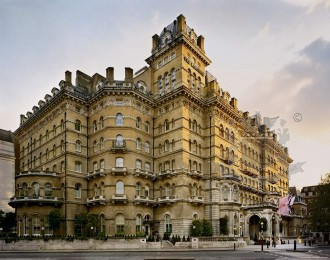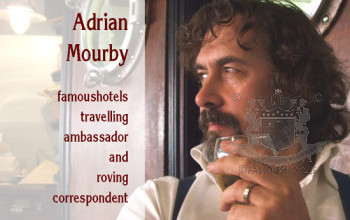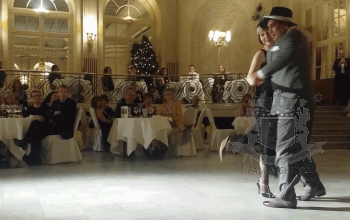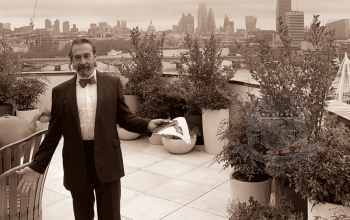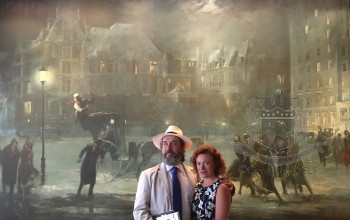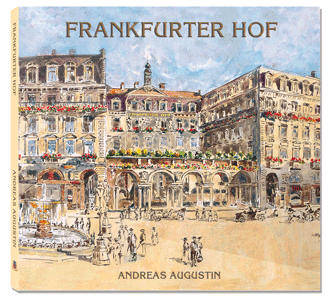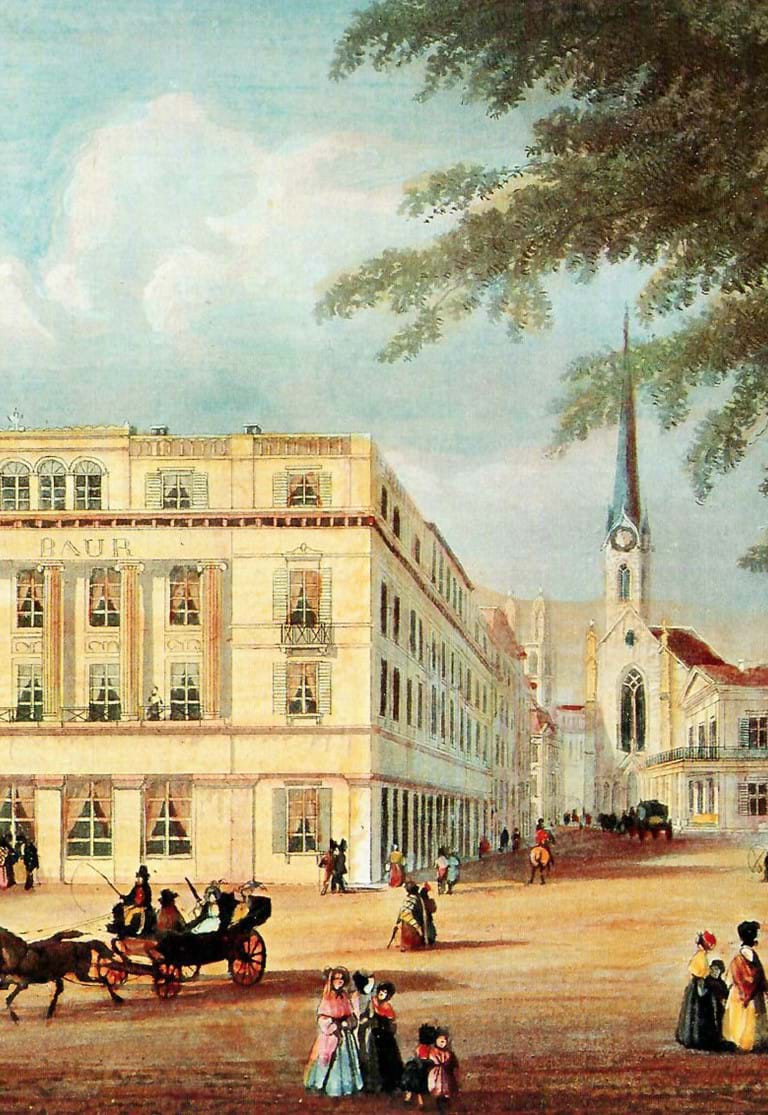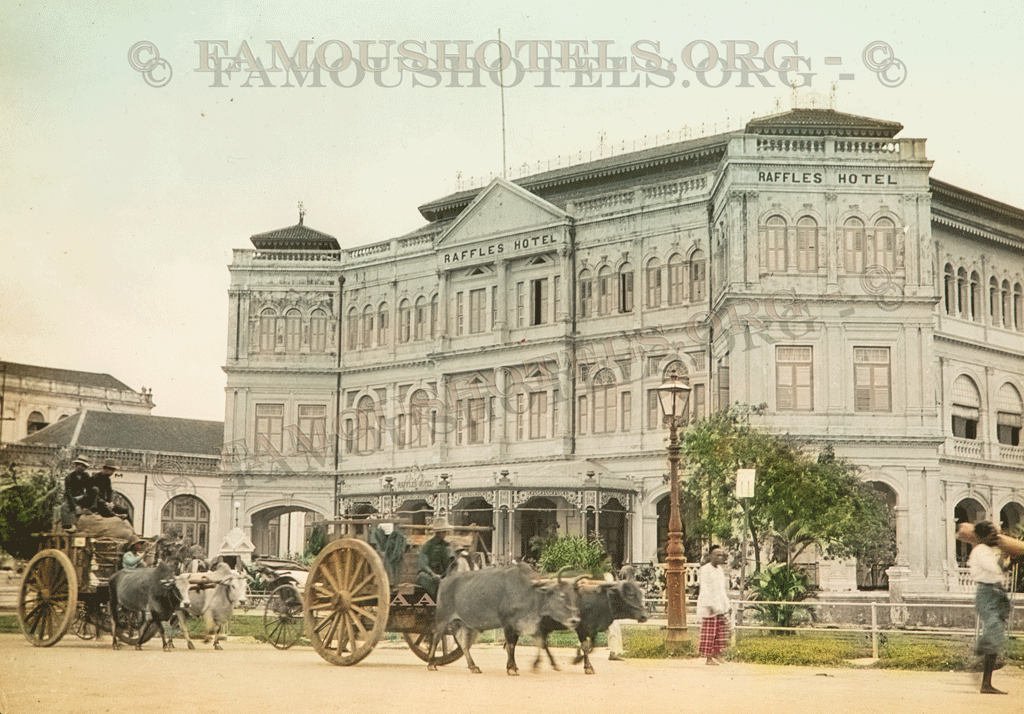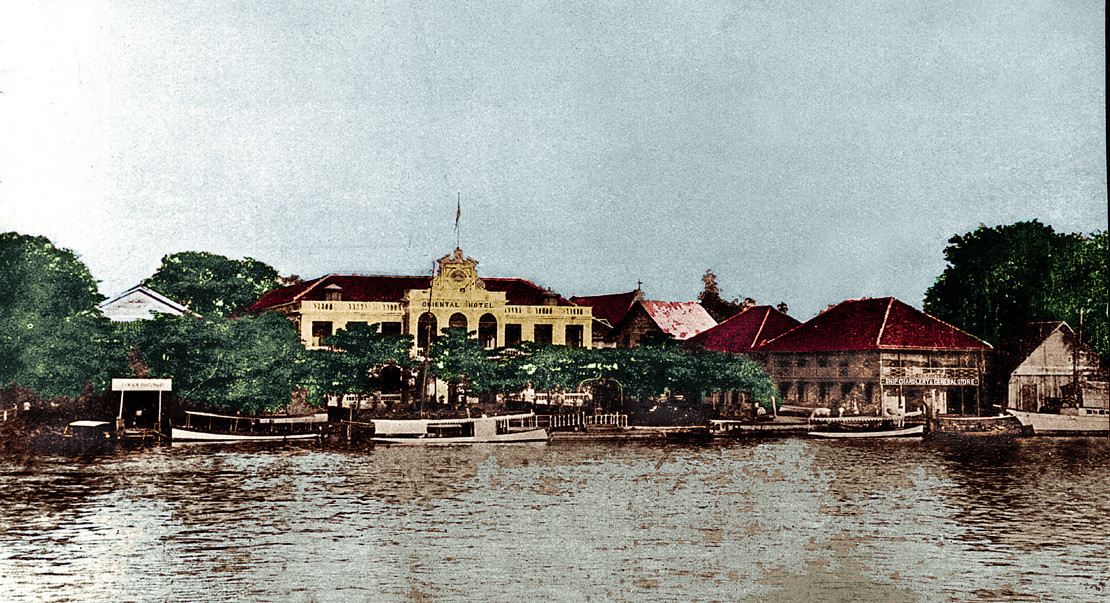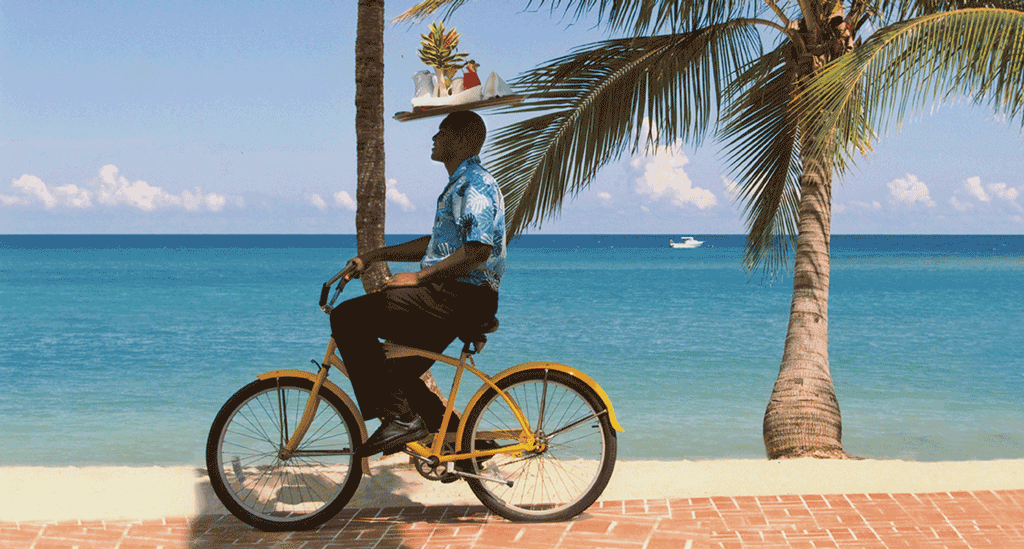Langham London: Antonín Dvorák’s Breakfast
( words)
"Why seek far afield when the good is close by?"
Contributing Editor Adrian Mourby knows where to breakfast.
The monumental Langham Hotel has dominated the south end of Portland Place since its completion in 1865. The hotel’s very height triumphantly proclaimed the fact that it was the first in the world to install hydraulically powered lifts.
From its first day The Langham considered itself a fitting place for royalty. It was opened by the Prince of Wales and France’s former emperor, Napoleon III, spent the initial stages of his London exile at the Langham before moving to a country house in the village of Chislehurst.

Antonín Dvorák: in search of breakfast
When I first visited in the 1980s, the Grand Dame of London hotels had fallen on very hard times. The Italian mosaic floors and the walls, once lined with 15,000 yards of Persian silk, were hidden behind hardboard that had been nailed in place during World War II. Anyone who saw the TV series Brideshead Revisited will remember how the baroque splendour of Brideshead had to disappear behind protective panelling when the British Army moved in. In the Langham’s case it had been taken over not by the army but the BBC during World War II.
The great Ed Morrow broadcast live from the roof of the Langham during the Blitz, adopting his famous catchphrase “Goodnight and good luck” from the black humour of the hotel porters who in 1940 never knew if they’d make it through the night.
By the time I got to enter The Langham, as a BBC employee in Mrs Thatcher’s 80s, it had become the BBC Club with a series of overspill offices upstairs. I worked with playwrights on their scripts in what had once been bedrooms stayed in by the likes of Mark Twain, Noel Coward, Charles de Gaulle and Arturo Toscanini. The BBC at the time was hoping to demolish this historic hotel and replace it with a modern office block. Revisiting last week for the first time in thirty years I’m so glad they failed.
In 1986, the BBC sold the property, which reopened in 1991 as the Langham Hilton. In 2009 it reopened again as the flagship of Dr. Lo Ka Shui’s Langham Hotels and Resorts after a massive refurbishment.
Today the hotel with its marble foyer, palm court lounge and modern Chinoiserie by designer David Collins has a friendly grandeur about it. The transformation is so complete that it was almost impossible to see the dusty old Lady I remembered from my BBC days.
This Langham is also much brighter than the one that Oscar Wilde and Arthur Conan-Doyle knew in 1889 when together they dined with the publisher Joseph Marshall Stoddart, a meal that resulted in Wilde being commissioned to write The Picture of Dorian Gray and Conan-Doyle The Sign of Four, his second Sherlock Holmes novella.

Chinese lanterns by David Collins at The Langham's Artesian Bar
My favourite Langham story however concerns the Czech composer Antonín Dvo?ák who stayed here in 1884 as a guest of London's Royal Philharmonic Society. When I worked for the BBC I was told that, unsure of how to get breakfast in such a huge building, Dvo?ák went out on foot early one morning looking for a cafe. He found one eventually – or so he thought – in Pall Mall, walked in and sat down. The diminutive composer soon grew annoyed that no one would serve him. Eventually he was informed that he was in the Athenaeum Club and could not be served unless he became a member, a process that took many, many years.
I’m glad to say that my breakfast in the hotel’s dining room, Roux at The Landau, was effortless and delightful.

